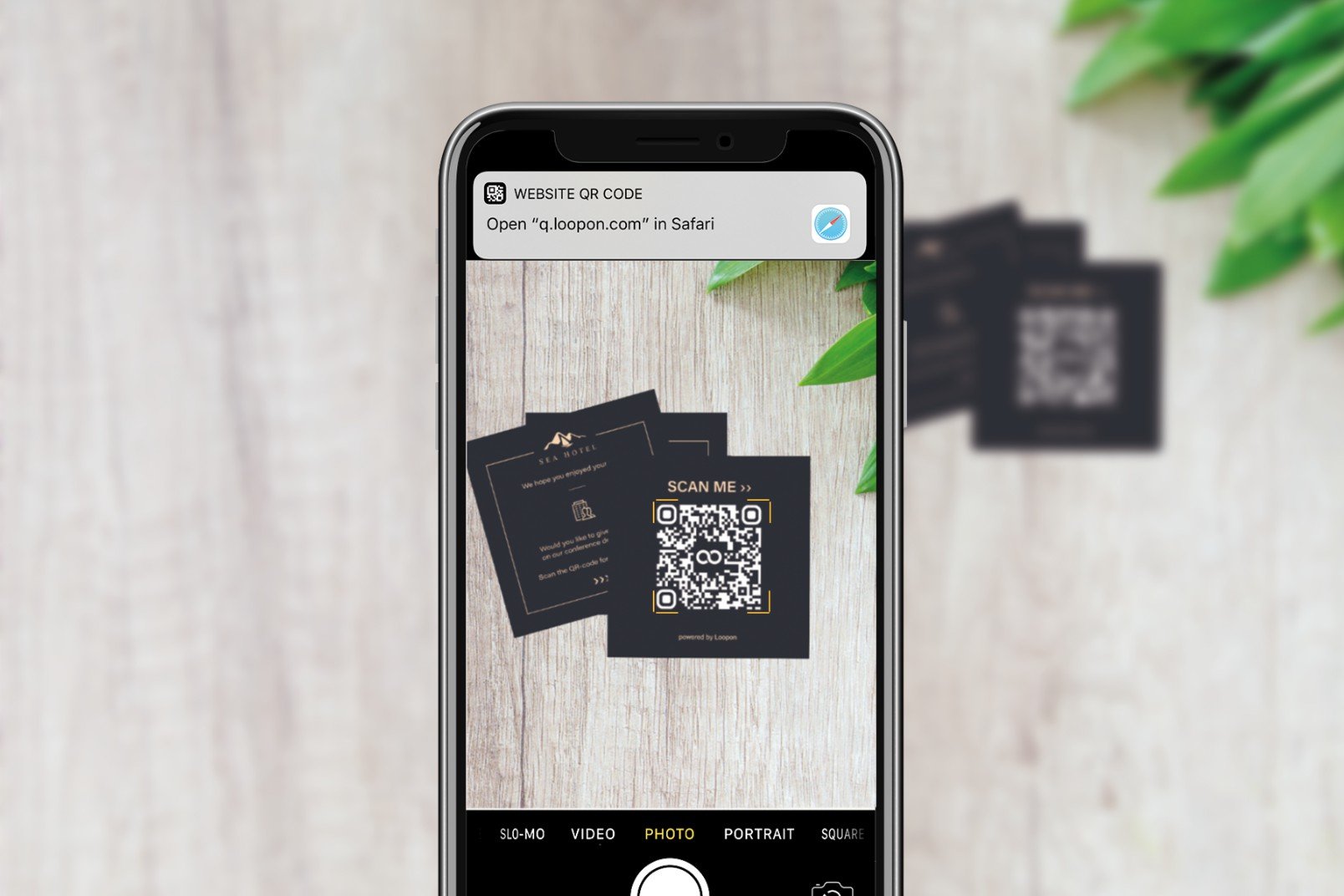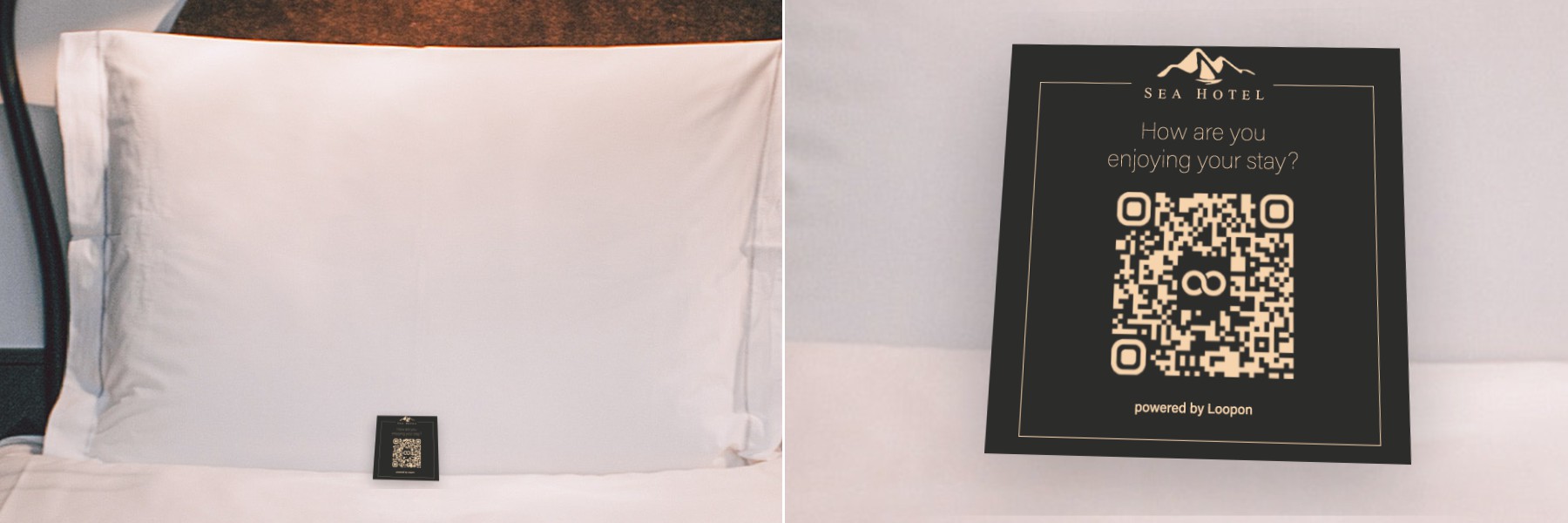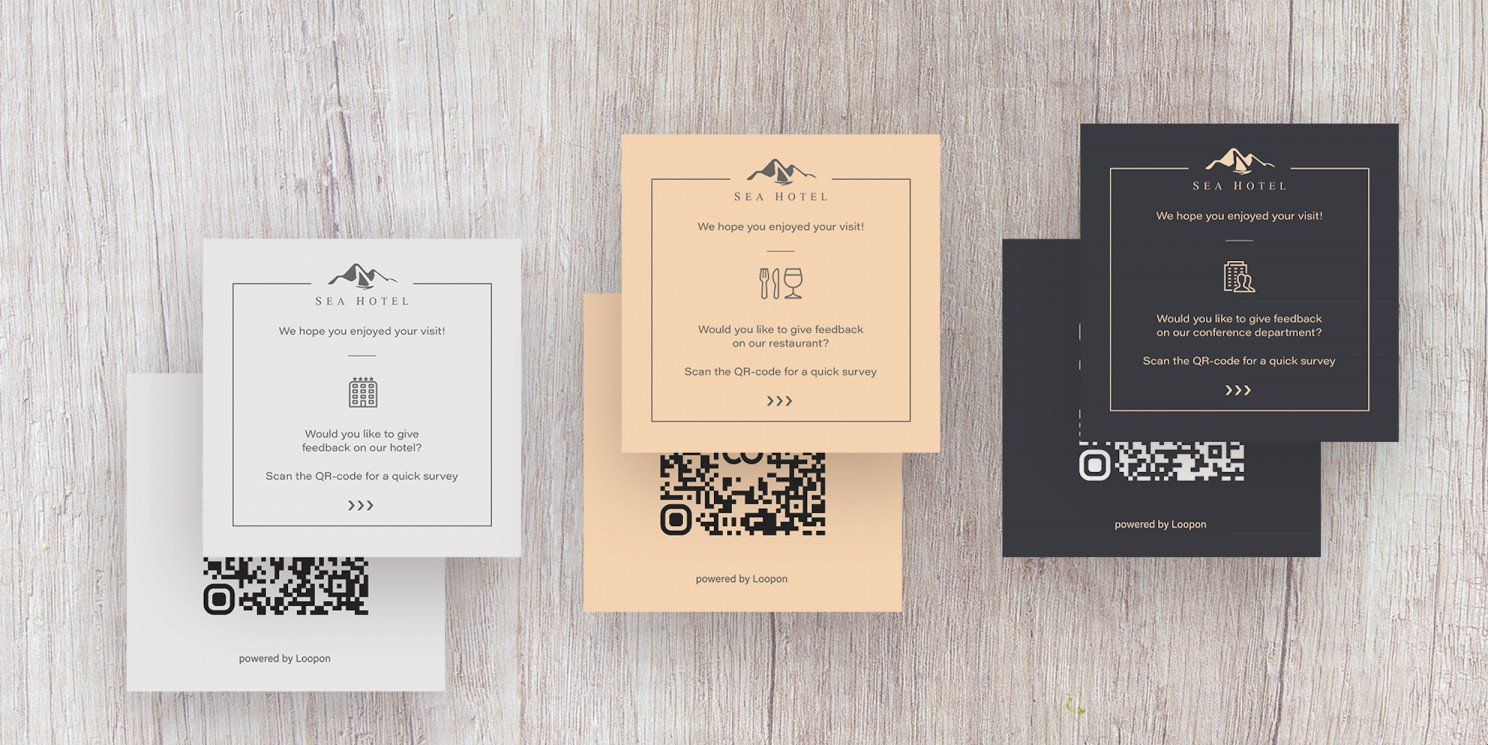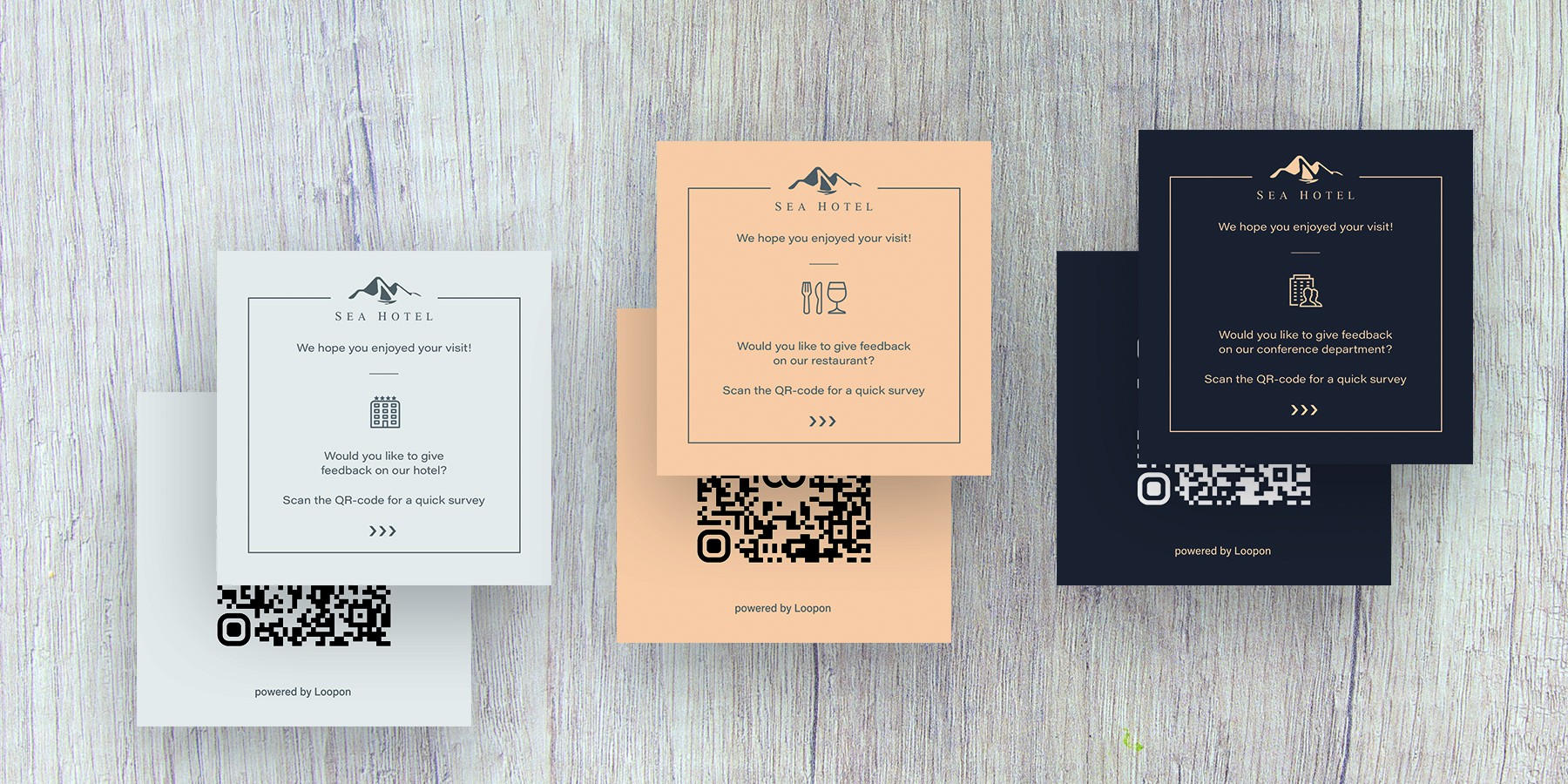
Do you own an iPhone, Android or another smartphone? It is very likely that you have an automatically built-in QR code-reader. In our latest blog post we investigate how the technology can be applied to the hospitality industry and benefit both you and your guests.
QR codes (short for 'Quick Response') were first introduced already back in 1994 when a Toyota subsidiary called Denso Wave developed QR codes in order to improve the manufacturing process. Barcodes have been used for decades and the concept of QR codes was attractive to many as they store more information than what barcodes are able to. QR codes first started appearing to the public around a decade ago but despite a big interest, the usefulnes was limited. People didn't have smartphones with HD cameras, they were required to download an app in order to scan a code, and internet connections were much slower.
Now, a few years later, the potential of QR codes is at an all-time high. Apple first began rolling out iOS11 in September 2017, allowing all iPhone users to scan a QR code through the camera app without any additional download. As of today, most smartphone users have the ability to scan QR codes without downloading additional applications. This includes iPhones, Xiaomi, Motorola, Samsung and Lenovo. According to Juniper Research, as many as 1 billion smartphones will access QR codes by 2022. Mobile user penetration is estimated at around 63% for 2019 and is expected to continue growing. Nearly 90% of the world population will have access to high speed mobile internet by 2020, highlighting the rise of QR codes and why companies should take advantage of them already now.
How it works
Simply look at a QR code through the camera lens, tap on it to focus and your phone will automatically read the code. Tap the notification to open the link from the QR code. The increase in built-in QR code readers is a huge benefit for both consumers and companies, enabling new exciting opportunities.
Use of QR codes today
Today QR codes are used for all kinds of things and we see companies starting to take advantage of the increase in availability more and more. Some uses of QR codes include mobile payment, coupons, free app downloads, website redirects and more. Creative uses include RSVPs for wedding invitations, advertising opportunities on coffee cups, human billboards or more commonly, QR codes on business cards.
Benefits of QR codes
QR codes enables seamless communication. Now that most phones have built-in readers, consumers can use QR codes within seconds. It's quicker to scan a QR code than to open your browser, enter a link and search the internet. Outside of the ease of use, they are cost effective in the sense that you don't pay for anything outside of the placement and they are also very easy to deploy. QR codes over the last few years have become more customizable (colours, logos etc.), allowing for creative and engaging placement for all nearly all industries.
QR codes in the Hospitality Industry
Within the hospitality industry specifically, there is huge potential with the increased use of QR codes. We like to focus on two main benefits:
1) QR codes can reach guests in cases where hotels/restaurants don't have all information about the guests (ex. conference participants, walk-ins at restaurants). In these cases QR codes can be used and quickly ask the guest to fill in additional information while also collecting feedback.
2) It's a non-intrusive way of collecting feedback. Hotels can leave a specific QR code by the breakfast, one by the restaurant, by the conference room and so on. It's an easy way to collect feedback for specific parts of a hotel without having to ask guests for additional data or information to those who don't feel comfortable giving more details.
Two examples
1. Hotel Conference
Let's say a hotel is hosting a big conference with 300 participants and would like to collect feedback on how it was perceived. However, the hotel does not have complete contact details from a lot of the participants, especially those not staying in the hotel. The hotel decides to strategically place small business cards with QR codes throughout the day. During the coffee break, next to the cups you find a pile of cards asking "How did you find the morning session?". Participants can scan the code on their phone. The QR code takes the participant to a simple guest survey where they can enter name, email and and answer three questions in less than 60 seconds. The hotel repeats the same steps for lunch and continues to collect feedback throughout they day. In the goodie bag given in the morning, likely to be emptied by the participants after the conference, contains another small card asking for feedback on the conference as a whole.
2. In-Stay feedback during a guest stay
While post-stay feedback is a powerful tool to get an overview of the entire stay, a lot of context and details might be forgotten once the guest has left the hotel. By giving an easy way to provide feedback during the stay, the guest is inclined to provide more detailed information while the hotel gets a chacne to solve an issue before the guest has returned home from their stay. Placing a small card with a QR code in the bedroom is an easy way to reach the guest. Once the guest enters the room they can scan the code to provide feedback on how their stay is going, how the checkout process was, and also provide additional information if they desire to do so. The hotel could also choose to wait 24 hours and leave a small card after cleaning. The card addresseds the guest and asks them how they are enjoying their stay so far and if the hotel can do anything to make them feel even more at home. This enables the hotel to receive live feedback and can make improvements to those guests who aren't fully satisfied. This in term will lead to more positive reviews in the long-run.

Loopon offers automatically generated QR codes that link to a guest survey. These can be used by hotels, restaurants conferences and more for feedback collection. Guests are continuously looking for recent reviews when booking a restaurant or hotel night and by collecting feedback with QR codes, you can make sure that you have up-to-date feedback available. Studies show that hotels using Loopon can experience up to 400% increase in reviews on Tripadvisor and using QR codes to link to your guest survey is a smart way of collecting new reviews.
Hotels often offer more than just rooms. Creating separate yet seamless feedback surveys allows you to collect feedback where appropriate. QR codes can help you reach your target segment without necessarily asking for personal information.
The future of Feedback
Within the hospitality industry, feedback solutions are becoming increasingly digital. Asking guests to fill out a printed survey is no longer realistic. Sending out a guest survey through an email is a better alternative. However, travellers today have inboxes full of emails and it's easy to ignore a post-stay feedback request. This is where QR codes com in handy and offer a more convenient solution that can be filled out immediately. It's difficult to predict to which extent hotels will start to use QR codes for feedback, but the potential is undeniable.
Do you want to get started with using QR codes? Contact us at Loopon and we'll get right to it.


